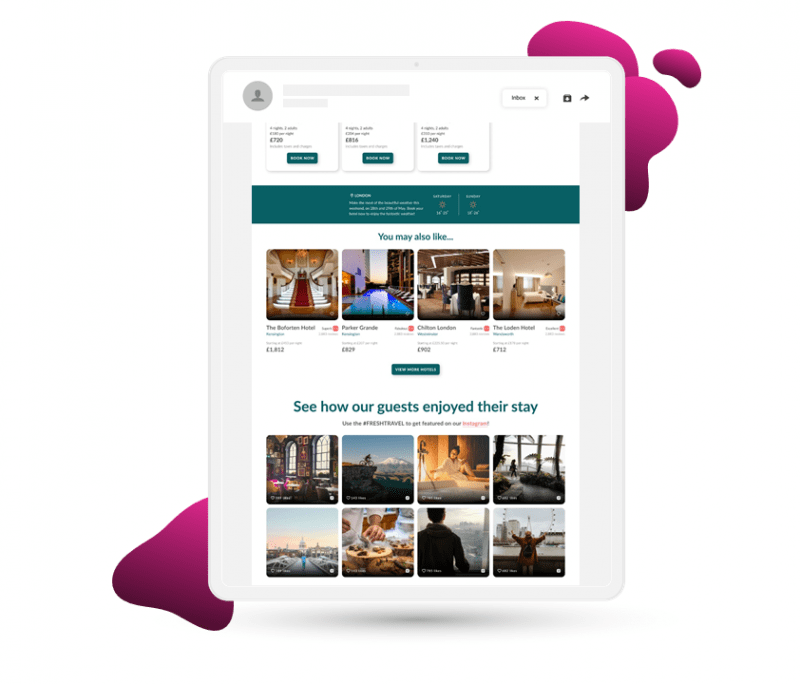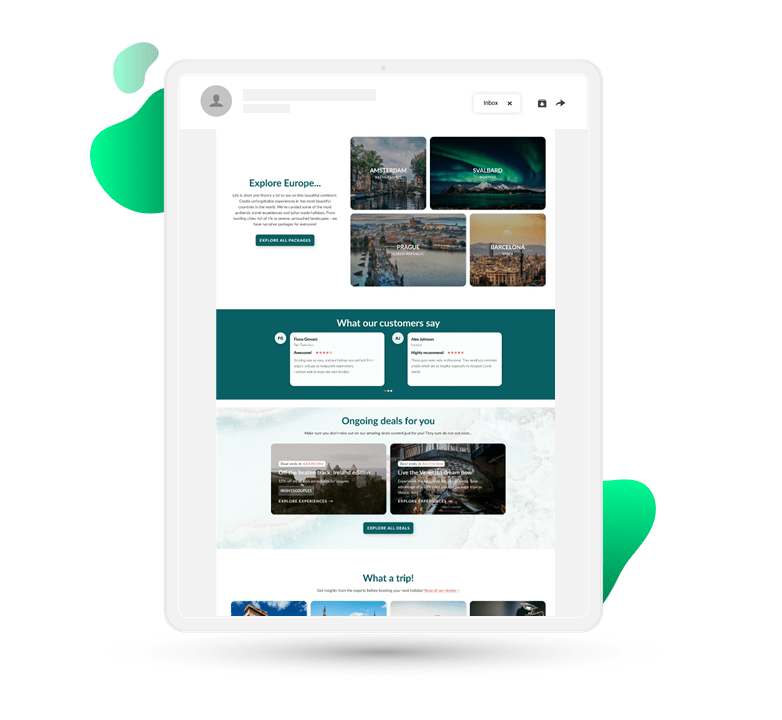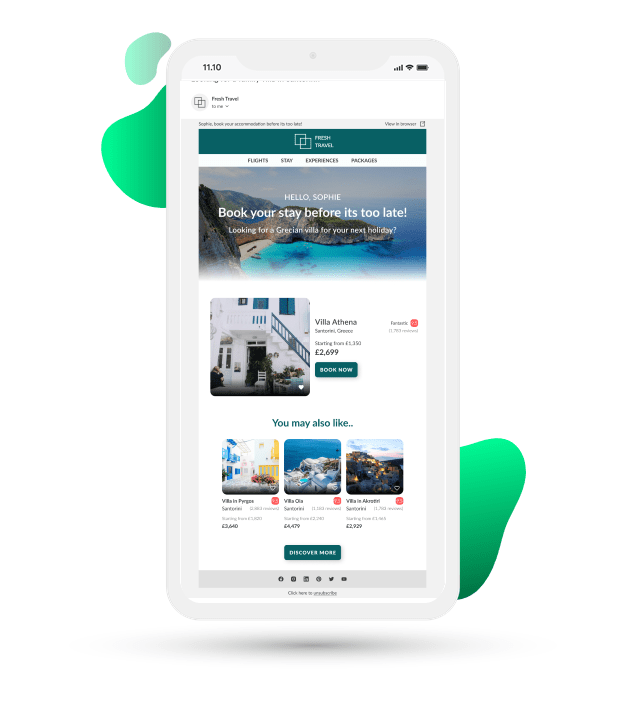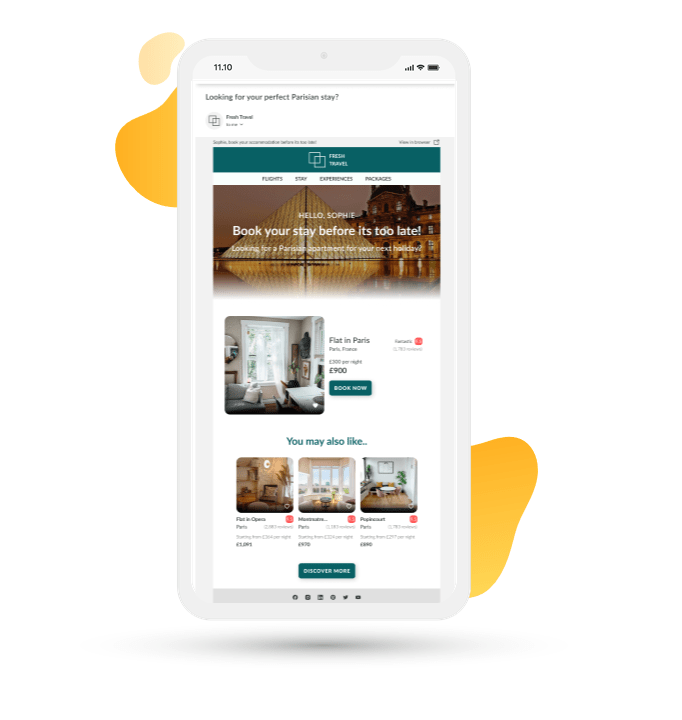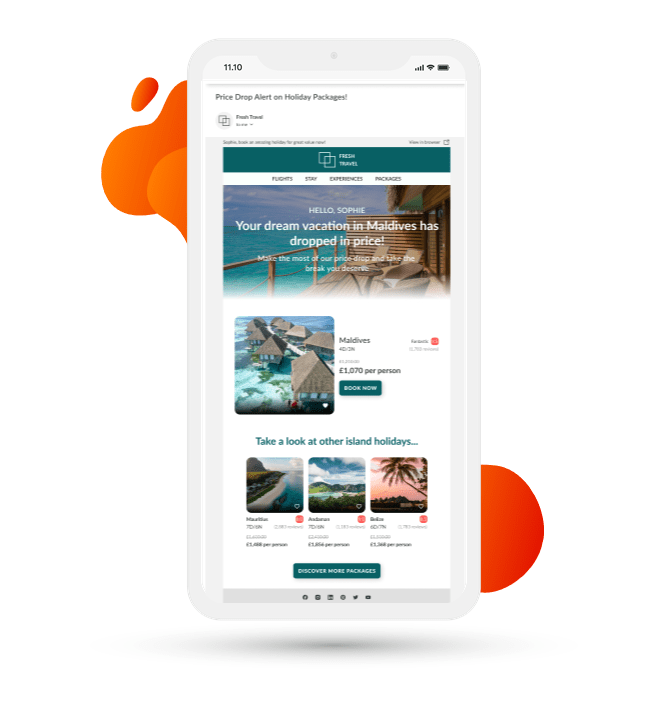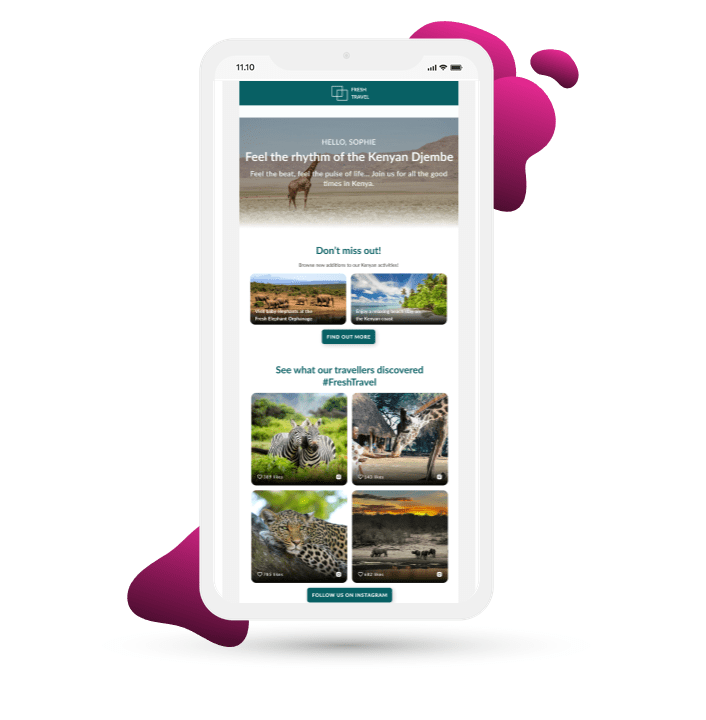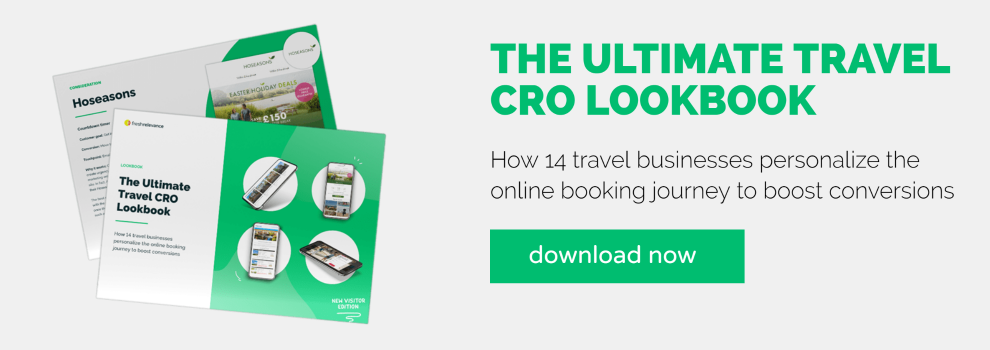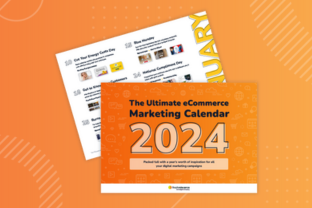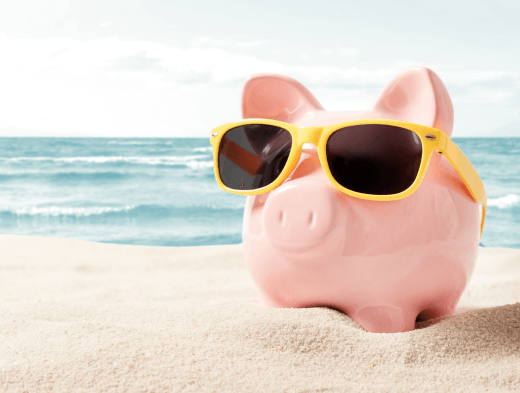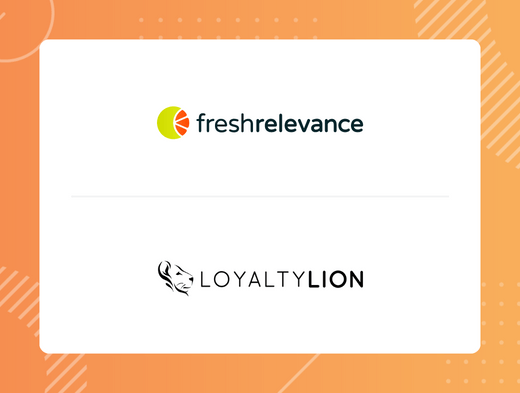Affluent travelers are defined as those who have substantial savings, can afford to fly premium economy or business class, and are willing to spend more on travel experiences. These travelers are ready and raring to experience exciting and extravagant trips after 2+ years of pandemic-induced restrictions, and are unlikely to be affected by the current cost-of-living crisis.
To capture the attention and win the loyalty of this group of consumers, it’s important to understand what they look for in the booking journey. Keep reading to discover 5 marketing tactics to help you appeal to affluent travel bookers.
You’ll learn more about tactics including:
- Social media & user-generated content
- Ratings and reviews
- Personalized product recommendations
- Price drop alerts
- Segmentation
1) Social media & user-generated content
Our research into traveler booking habits found that luxury travelers are more likely than the average vacationer to find vacation inspiration on social media. Luxury travelers also favor user-generated content to help them make a booking decision.
Luxe Digital cites social media and user-generated content as a key source of inspiration for affluent travelers during the initial ‘dreaming’ phase of the booking journey.
So, what exactly is user-generated content? It describes any content created by people, rather than businesses. A common type of user-generated content is reviews (which we’ll talk about later), but when it comes to social media, a key type of user-generated content is photos taken by travelers.
When it comes to getting user-generated photos from your existing customers, tell them the type of content you’re looking for and let them know exactly how they should share it, right down to the relevant hashtag.
Once you’ve re-shared your customers’ photos on your social media channels, you can add live social feeds to your web pages and in emails to inspire affluent bookers.
2) Ratings and reviews
Ratings and review websites are often the first place people go for inspiration, and our research shows that affluent travelers are far more likely than the average traveler to use this channel. In fact, 55% of affluent travelers use review websites to research vacations.
Make sure that when customers reach your website, they are guided with social proof at each stage of the journey. Display your company rating and reviews on the homepage to immediately showcase your trustworthiness and encourage customers to continue browsing. Then, once customers reach your product pages, make sure they are greeted with ratings and reviews for the specific trip, accommodation etc they are browsing.
3) Personalized product recommendations
While booking a vacation can be full of inspiration and excitement, it can also be a long and complicated experience, and high-income shoppers show little patience for one-size-fits-all marketing that slows them down. In fact, almost 1 in 3 affluent travelers get frustrated by irrelevant offers.
Personalized product recommendations are an effective way to inspire affluent travelers with trips that resonate with them. Using past browse and booking data, you can display highly relevant recommendations. For example, you could highlight family-friendly villas or sleek apartments more suited to couples depending on what the traveler has searched or booked previously.
Personalized product recommendations such as these are great when displayed on your website, but are even more effective when shown on multiple channels, helping to reach travelers with relevant content wherever they prefer to go for inspiration.
Email with personalized product recommendations aimed at someone who has browsed family-friendly villas in Greece
Email with personalized product recommendations aimed at someone who has browsed apartments in Paris
4) Price drop alerts
Affluent consumers appreciate email marketing that helps them avoid missing out on relevant deals. Price drop alerts are of particular interest, with 1 in 3 luxury travelers saying they find this marketing tactic helpful when making a purchase decision.
Price drop alerts work in a similar way to other triggered emails. For customers who have opted into your email marketing, their browse data is captured and stored. Then when you drop a price in your ecommerce system, the alert is automatically triggered to customers who have browsed that particular trip or hotel room, for example.
To make your price drop alerts as engaging as possible, include details and images of the browsed items to jog the recipient’s memory.
5) Segmentation
Unsurprisingly, luxury travelers don’t want to be on the receiving end of mass marketing campaigns. In fact, 41% of affluent travelers say they would be more loyal to a travel company that understands their needs. That’s where segmentation comes in. In marketing, segmentation describes the act of grouping customers into segments based on similar characteristics and delivering targeted marketing to those segments. In addition to demographic and geographic segmentation, you should consider creating segments based on purchase and browsing behavior, as this will allow you to target travelers based on their interests, for example safari vacations vs city breaks.
Once you have your segments set up, you can deliver personalized marketing in many different ways. One example is sending personalized emails to all of your safari lovers with safari-related content, such as photos from a location they’ve stayed at or previously browsed and information about new activities added to your collection.
Download The Ultimate Travel CRO Lookbook to discover inspiring real-life examples from travel businesses who’ve optimized their booking experiences.



